Celebrating some of NeSI's 2020 milestones
As 2020 comes to a close, we wanted to take a moment to reflect on some of the positive milestones NeSI celebrated this year. We'll save the deeper dive into metrics for our annual review - in the meantime here are a few snippets we wanted to highlight.
Record-breaking usage in May & August 2020
Two of our biggest milestones to celebrate from 2020 were two periods of record usage on the HPC Platform. The first peak occured in May 2020 when users logged more than 12 million CPU hours on the Mahuika and Māui systems. Then, later in August a new record was set with more than 13 million CPU core hours used.
These two spikes topped the previous record of 11.29 million CPU hours, set last year in August 2019.
Solutions Manager Blair Bethwaite noted that these milestones are not only evidence of the high performance capabilities of the platform, they also reflect the efforts of NeSI's Systems Engineers and Application Support Specialists to keep the systems running efficiently and smoothly under significant (and growing) levels of demand.
These records represent an exciting lift in capacity, productivity, and reliability of the HPC Platform and we look forward to seeing what new peaks we can reach.
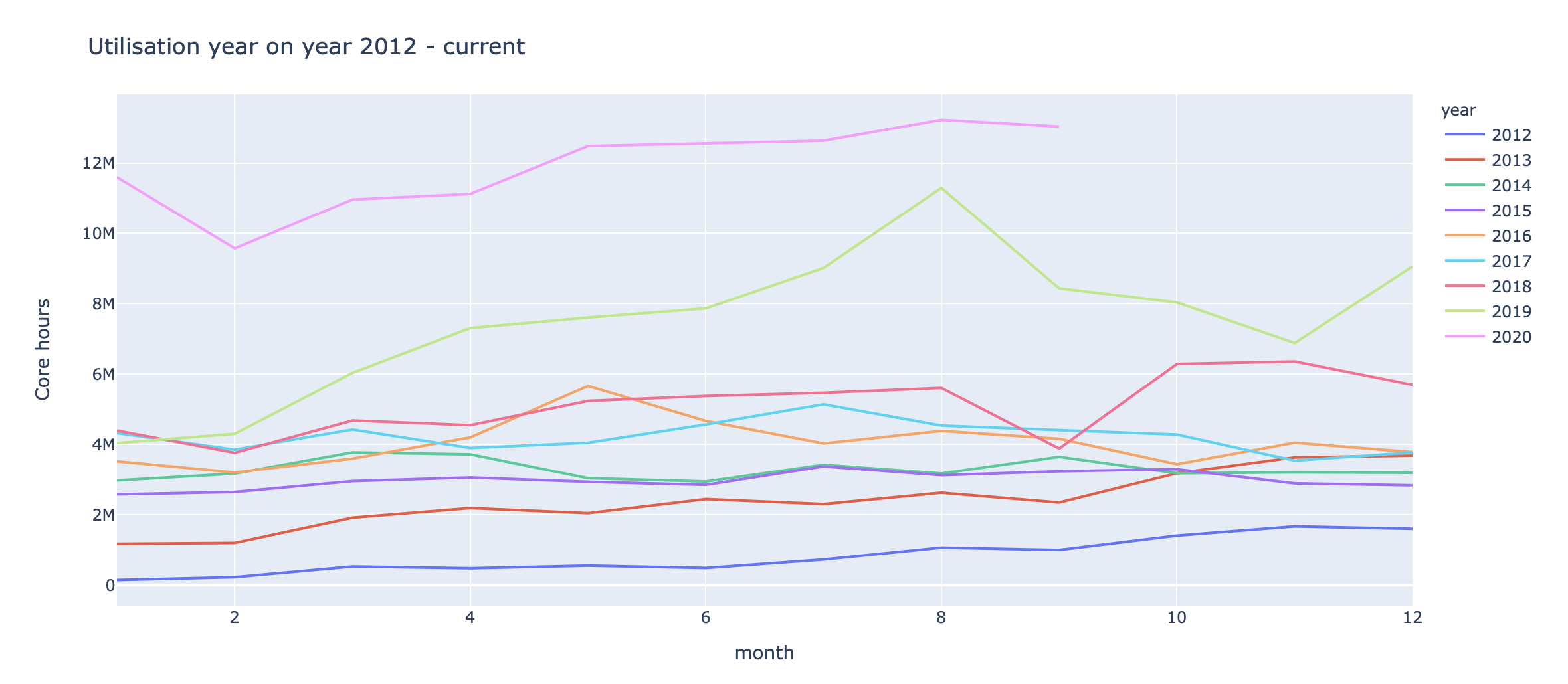
Activity across multiple platform capabilities
Looking at the year as a whole, we saw lifts overall in the number of core hours used, data transferred, and data stored on NeSI's HPC Platform. As we see increasing demand from researchers to transfer and share their data sets, NeSI has spent much of 2020 working with research communities, institutions, and REANNZ to improve end-to-end performance and reduce time to solution.
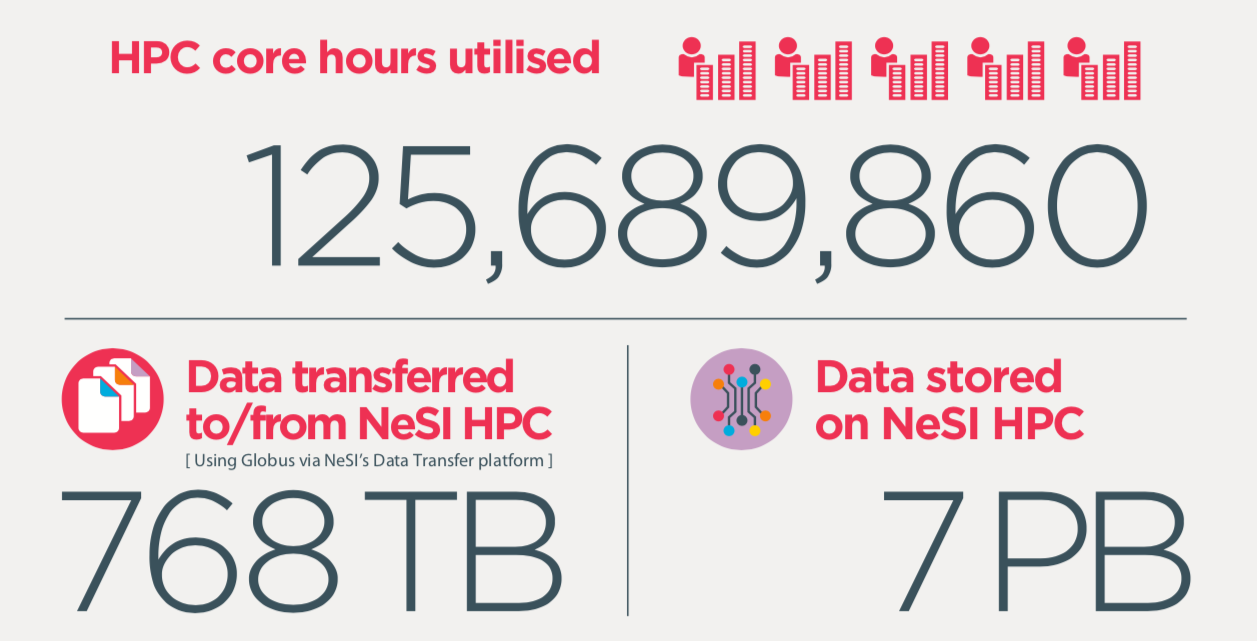
Increased numbers of projects and users
Overall, lifts were seen in all areas of user activity compared to 2019. A large focus of 2020 has been to support new capabilities in genomics research, machine learning applications, advanced data analytics tools, and virtual laboratories. These capabilities represent the increasing complexity and sophistication of computational research communities and their needs across New Zealand.
Looking ahead to 2021, we'll continue developing and rolling out these specialised eResearch services to lift researchers’ capabilities to tackle large, complex, and unique research challenges.
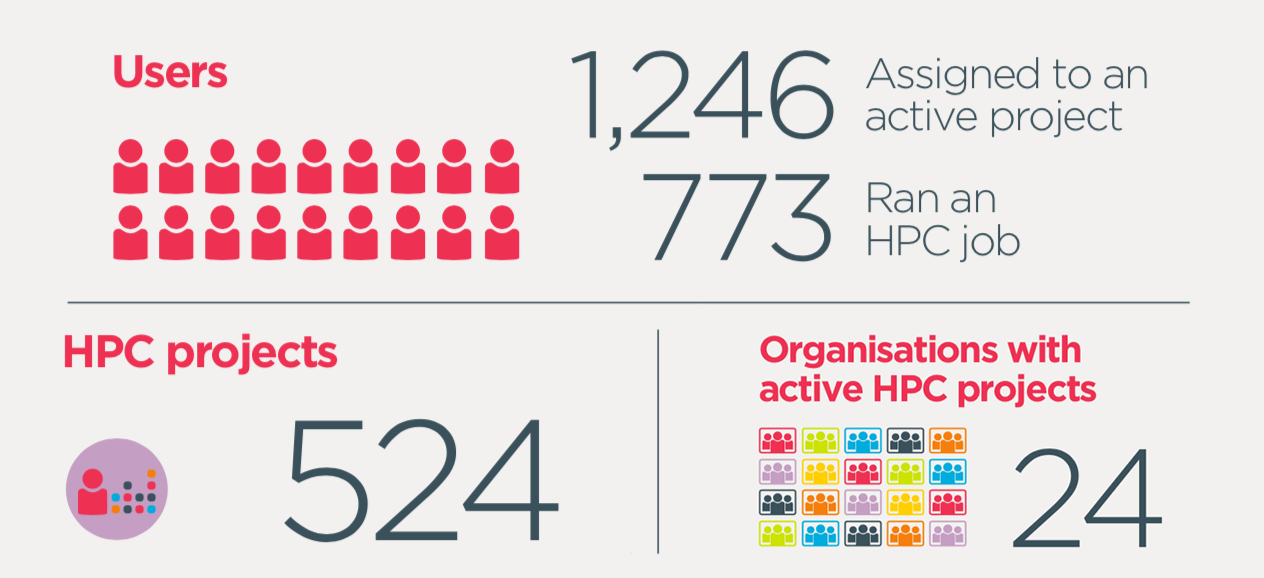
More support delivered through Consultancy projects
NeSI's team of research software engineers were very busy in 2020, working on nearly double the number of Consultancy projects compared to 2019. Visit our Case Studies section to learn more about the researchers and projects we supported.
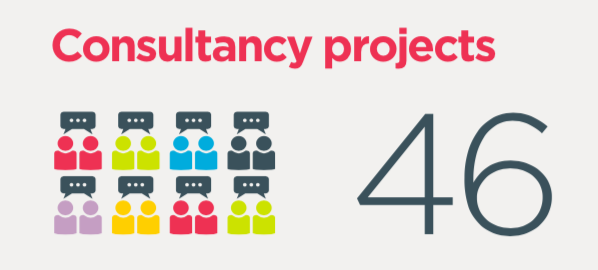
Looking ahead, we welcome more requests for support from research groups as we've brought on new expertise in data science and machine learning. Click here to learn more about NeSI's Consultancy service.
Increased reach through training initiatives
NeSI had a particularly active training year, in spite of having to pivot (like many organisations did) in March to revamp its approach and deliver everything online for a majority of the year. If you missed reading about how NeSI’s Dinindu Senanayake and Genomics Aotearoa’s Ngoni Faya made that transition basically overnight, we invite you to read 'Enabling learning during lockdown: What it took to move genomics training online overnight'.
An expanded program of webinars and other virtual workshops were delivered and captured, adding to NeSI's growing repository of training materials available on its YouTube Channel.
We also returned to in-person workshops once New Zealand's Alert Levels allowed them, supporting a series of Data Carpentry Workshops and Bioinformatics Schools (more on that below).
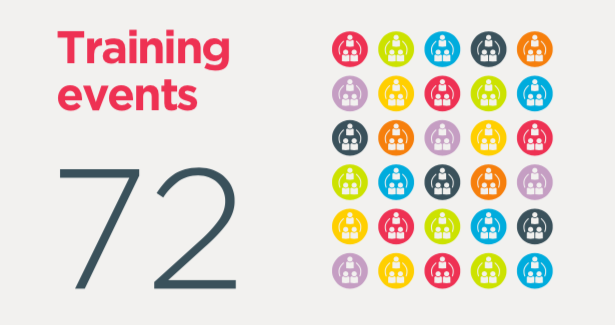
NeSI's partnership with Genomics Aotearoa has enabled more training events than ever for NZ researchers specifically in the bioinformatics and ‘omics fields. Dinindu and Ngoni regularly collaborate with institutions across New Zealand to deliver workshops and multi-day training events in-person and virtually.
Below is a brief synopsis of the number of events, attendees and hosted involved in delivering these events as part of that partnership (which represents a sub-set of our total number of training events mentioned above).
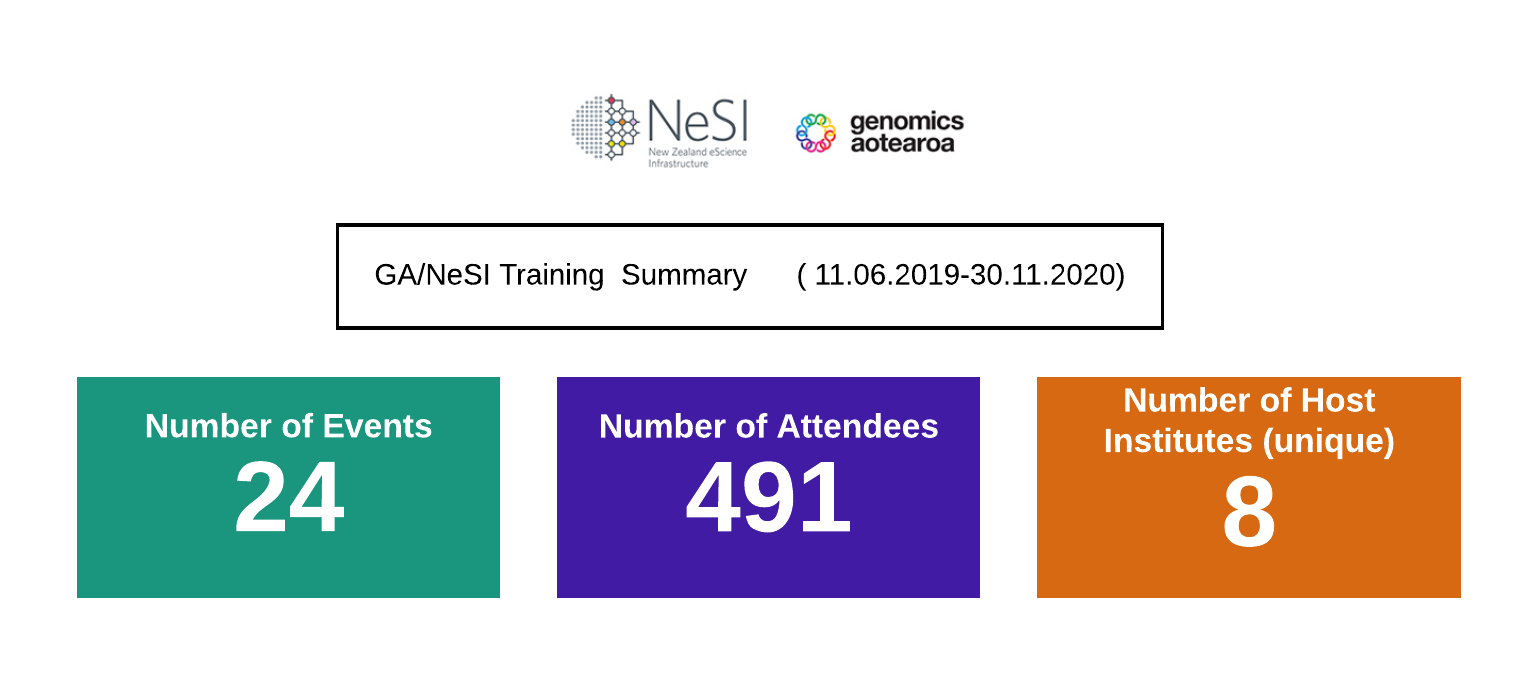
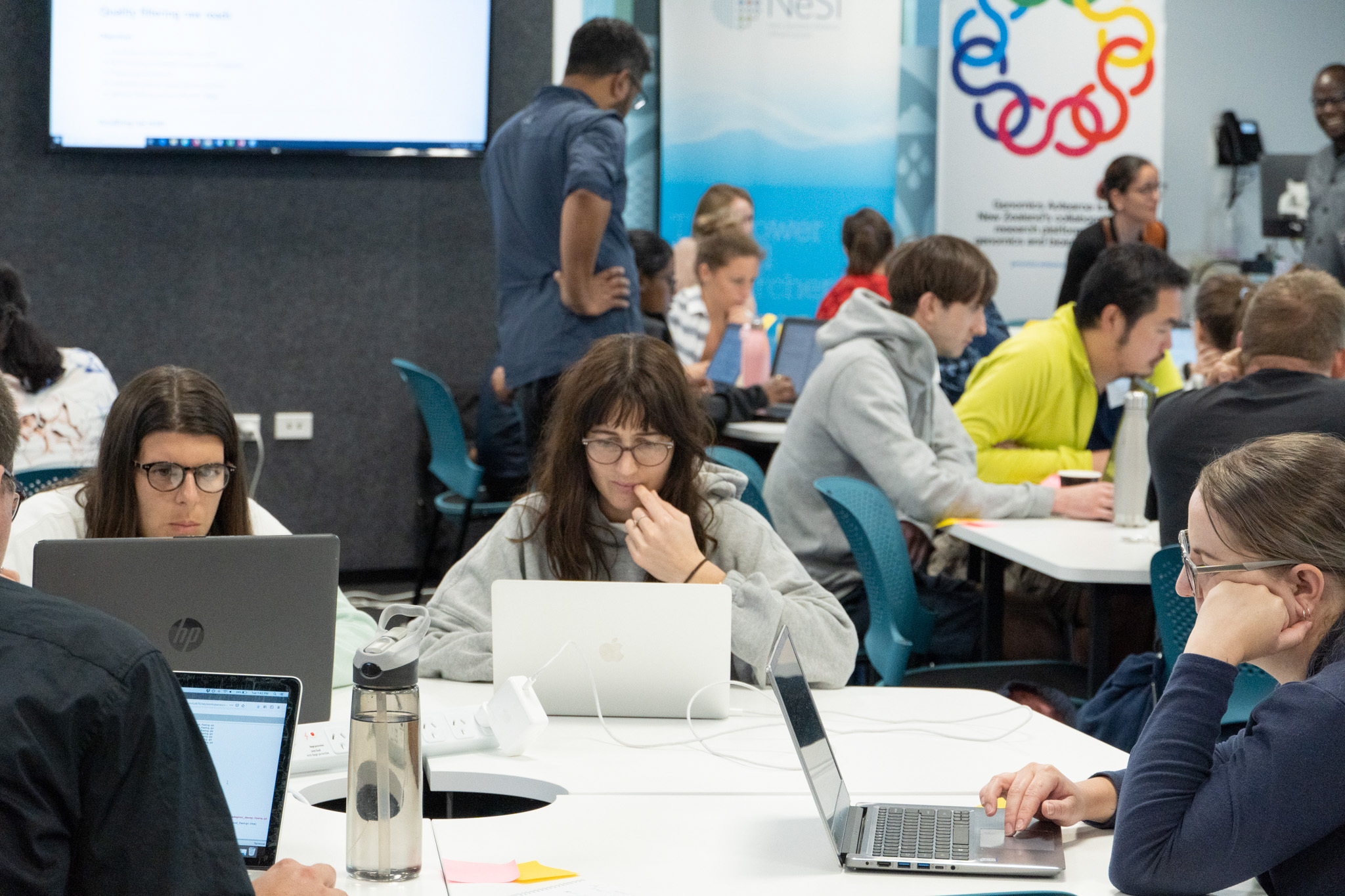
Look for more detailed recaps of our training partnerships to be showcased in the new year, including in a session or two at the eResearch NZ Conference!
To express interest in either participating in or hosting some form of research community training, contact Megan Guidry, NeSI Research Communities Advisor, by emailing training@nesi.org.nz.
As always, we welcome your thoughts on how NeSI is doing and welcome any feedback you may have for ways we can improve. Email us at support@nesi.org.nz anytime.
On behalf of everyone at NeSI, we wish you a safe and happy holiday, and we look forward to reaching new milestones in 2021!
Note on our statistics for 2020
Since we're a wee bit early in posting this recap for 2020, most of our stats below are tallies from data collected between 01 January - 16 November 2020. We'll look to update these totals again in 2021 when we have the remainder of 2020's data.





